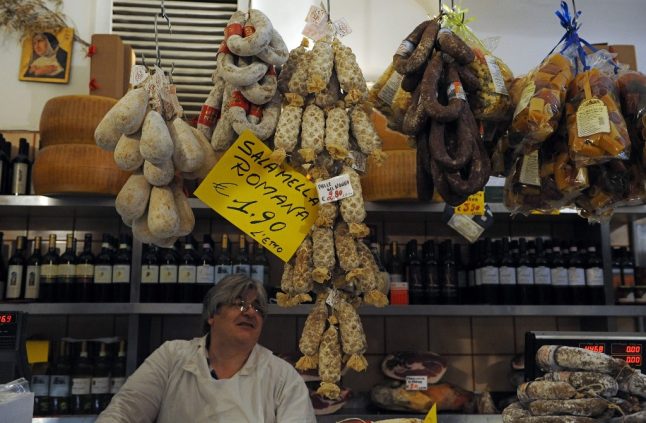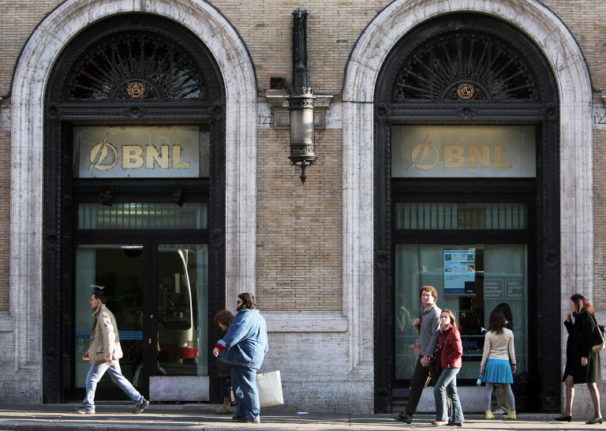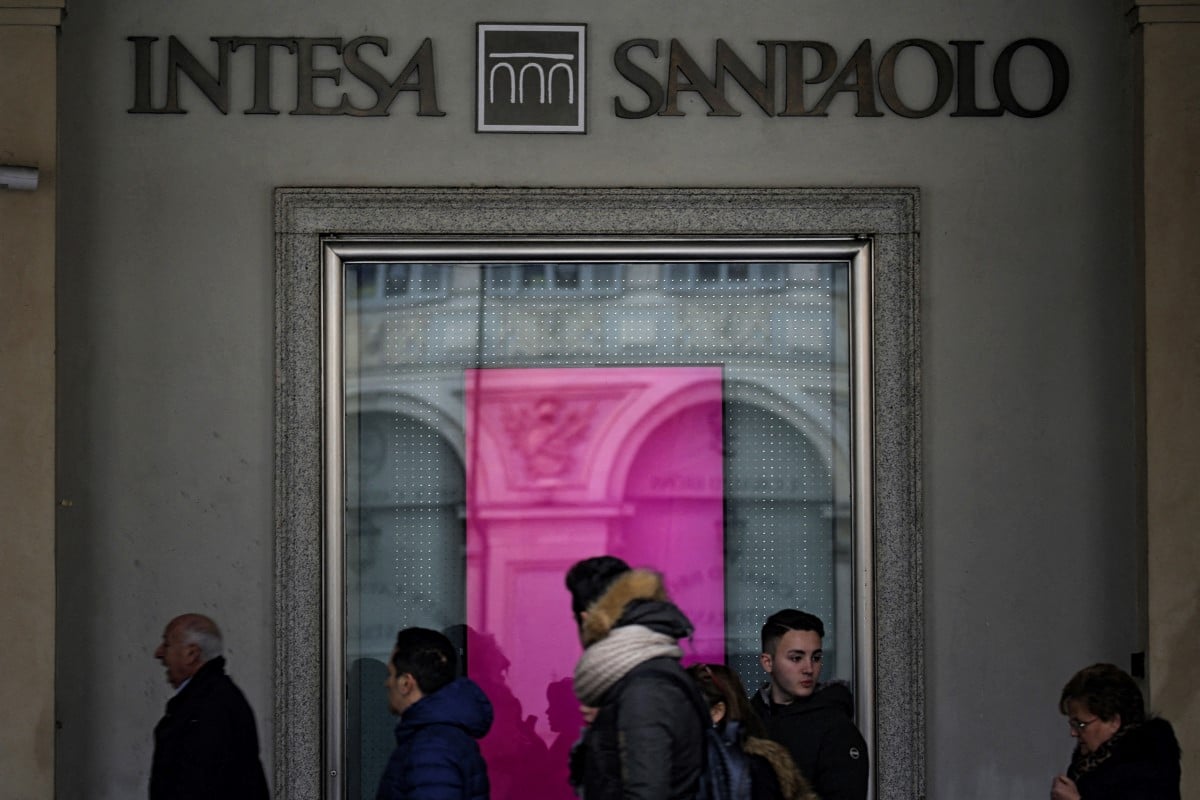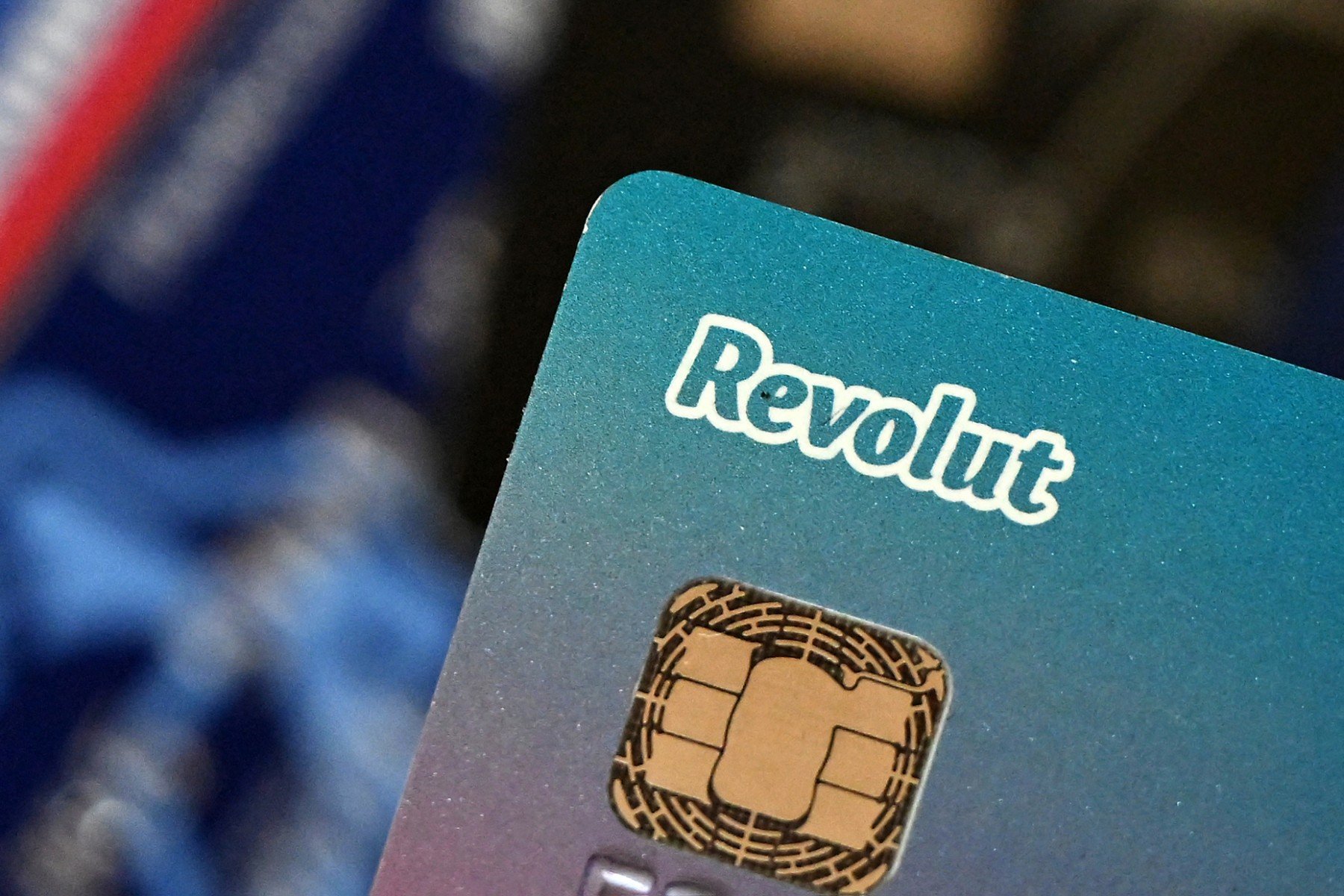EU statistics agency Eurostat compares everything from the price of groceries to utility bills to get a snapshot of how much living in each country in Europe really costs.
Here's what its consumer price level comparison has to tell us about Italy.
What costs more in Italy?
Even though Italy is one of Europe's biggest food producers, buying groceries here is more expensive than the EU average: 13 percent higher, in fact, making it cheaper than Ireland, Sweden or France but pricier than Germany, the Netherlands, Spain or the UK.
According to the latest national statistics available, the average Italian household spends €457 a month on groceries, the equivalent of nearly 18 percent of their total expenditure. But at least inflation is relatively low: food prices increased by just 0.4 percent between May 2018 and May 2019.
READ ALSO:
- The common Italian food myths you need to stop believing
- OPINION: In defence of spaghetti bolognese
- Italian recipes by an artisan pasta maker

Photo: Andrea Solaro/AFP
It'll also cost you more to kit out your house: home furnishings cost 11.9 percent higher than average and are more expensive in Italy than any of the 28 EU countries except Luxembourg – so if you're moving here, it might be worth considering shipping some of your homewares with you.
The cost of communications – phone and internet services and equipment, the post – is 10.4 percent higher in Italy than the EU average, which makes it slightly more expensive than the UK and significantly more expensive than France. But it remains cheaper than Sweden, the Netherlands or Spain.
Even so, communications is one of the few areas of spending in Italy where prices are actually falling: they cost 9.4 percent less in May 2019 than they did in the same month a year before, a far bigger decrease than in any other category.
Internet companies in particular have struggled to attract customers more than in other EU countries: just 79 percent of households in Italy have a broadband connection, compared to 85 percent across Europe.
READ ALSO: Foreigners rank Italy 'worst in Europe' for internet and paying without cash

Photo: Vincenzo Pinto/AFP
Disappointingly for those looking to travel or eat out in Italy – i.e. everyone – bills for restaurants, bars and hotels here are 4 percent higher than the EU average. It's noticeably cheaper to dine or stay in Greece or Spain, and only marginally more expensive in the UK (7 percent above average), though most northern European countries are significantly pricier.
Prices for restaurants and hotels have increased by 1.1 percent in the past year, according to Italy's national statistics office. But the in-depth picture probably varies widely because of the sheer number of establishments in Italy: yes, there are plenty of pricier places, but it's not hard to find great-value options, especially when it comes to eating out.
READ ALSO:
- Twelve authentic spots to eat and drink on a budget in Venice
- Where to get great street food in Florence
- How to spot good quality gelato in Italy – and how to suss out the fakes
Buying a car, motorbike or bicycle in Italy will cost you 2.4 percent more than the EU average. When it comes to personal transport, you're better off going to Germany, the UK, Sweden or Spain (though you'll save money compared to France, Ireland or the Netherlands).
It's perhaps surprising when you consider that Italy has almost the highest rate of car ownership in the EU, with 625.1 cars per 1,000 residents compared to the European average of 507.3. But many people in Italy feel obliged to buy their own vehicle regardless of cost when public transport is limited or unreliable.
The other things that will cost you slightly more in Italy than most other EU countries are clothing and footwear (1.1 percent above average), and recreation and leisure such as books, cinema tickets, TVs, pets and package holidays (+1.7 percent).

Photo: Marco Bertorello/AFP
What costs less in Italy?
Moving to Italy isn't all bad news for your wallet. Though it might be for your liver and lungs: alcohol, tobacco and narcotics are 5.1 percent cheaper in Italy than the EU average, which puts it in between Greece (-3.8 percent) and Germany (-5.3 percent). And it's much cheaper than expensive Ireland or the UK, where prices are 77.8 and 56.7 percent higher than average respectively.
But booze and smokes are getting more expensive in Italy: they're are among the consumer products with the highest rate of inflation, at 2.1 percent in the past year.
READ ALSO: Seven reasons why living in Italy can be bad for your health
In better news, housing will also cost you less here. The cost of buying or renting property in Italy, as well as maintaining it and paying the utility bills, is 8.8 percent lower in Italy than the EU average. That makes Italy cheaper in this respect than even Spain, which beats it in almost every other category, and tallies with the fact that Italy is the only country in the EU where house prices are actually falling (-1.1 percent in 2017).
But overall, housing expenses in Italy are rising. Inflation is at 3.3 percent on housing and utilities, making it the fastest-increasing cost in Italians' household budget.
READ ALSO:
- What's wrong with the Italian property market?
- What can you buy for 500K around Italy?
- The real cost of buying a house in Italy as a foreigner

Photo: Christophe Simon/AFP
Travellers will be happy to hear that Italy is one of the cheapest places in the EU to take transport. Catching a train, bus, plane or boat is 22.7 percent cheaper in Italy than average, making it slightly cheaper than Spain and a fraction more expensive than Greece. Almost every western European country is pricier, especially the UK (26.6 percent above average) and Netherlands (+34.3 percent).
Anyone who's ever waited for a bus in Rome will tell you, though, that you get what you pay for. Public transport in Italy is cheap and it shows, though trains (mostly) offer better service and often at bargain prices.
What do you think?
In my own experience as Brit in Rome, I find anything bought from a pharmacy here, whether medicine or cosmetics, significantly pricier than in the UK. Public transport is a fraction of what I'd pay in London, though usually for a fraction of the service – the one exception being regional trains, where I'd take Trenitalia over Thameslink any day.
READ ALSO: The 25 stats that help explain Italy today
Groceries aren't dirt cheap, but nor are they overpriced – and you often get a great price-quality ratio, especially if you shop at markets. My internet and phone contracts offer worse value for money than I could get in the UK, but eating and drinking out is almost always cheaper.
And I'm surprised to hear that clothes and footwear are more expensive in Italy than other EU countries, because I'm always amazed by how cheaply I can find well-made leather shoes here.
What's your experience? And how does Italy measure up to countries outside Europe?
Fill in the form below to let us know.
Loading…





 Please whitelist us to continue reading.
Please whitelist us to continue reading.
Member comments